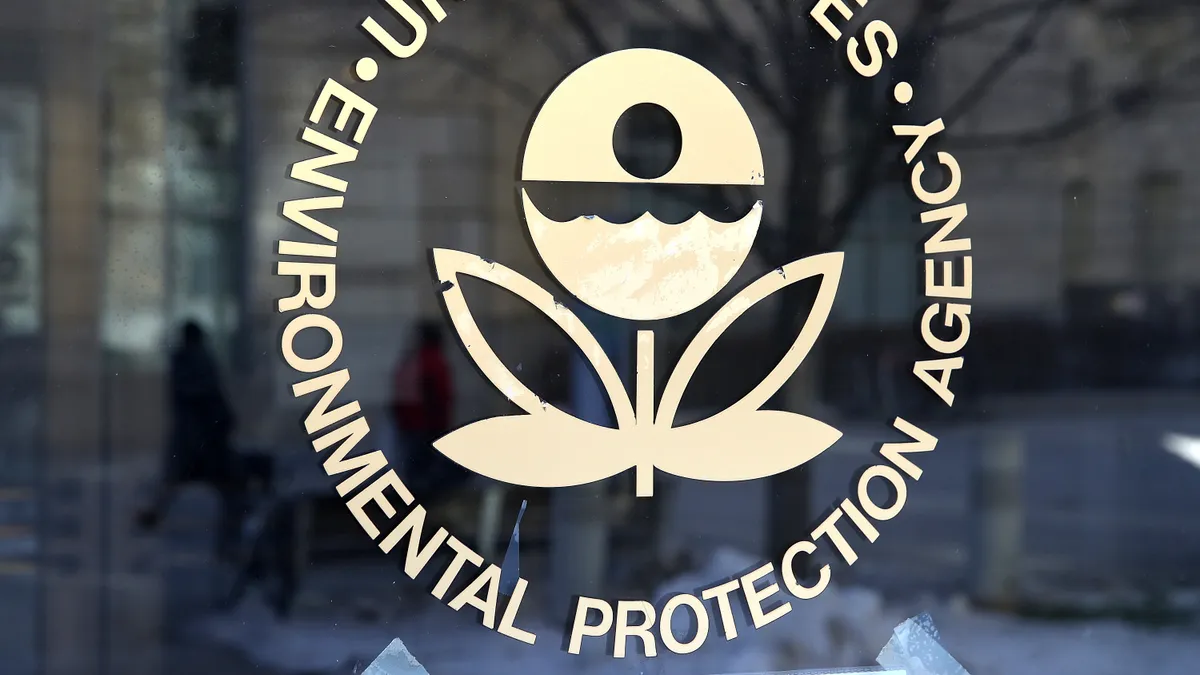A budget approved by the House Appropriations committee Wednesday proposes major spending cuts to the U.S. EPA and environmental justice efforts, but also outlined support for chemical recycling, plastics research and other waste and recycling initiatives.
The Republican-controlled committee said the fiscal year 2024 Interior, Environment, and Related Agencies budget bill was designed for “reining in” what it considers unnecessary discretionary spending by proposing a nearly $4 billion cut to the EPA’s budget, which would be a 39% reduction over 2023. It also called for rescinding $1.35 billion in environmental and climate justice grants funded through the Inflation Reduction Act.
House Appropriations Committee chair Rep. Mike Simpson, R-Idaho, said drastic cuts were necessary in part because of national debt and inflation issues. But ranking member Chellie Pingree, D- Maine, said the proposed bill “will completely debilitate America’s ability to address the climate crisis.”
Groups like the Clean Budget Coalition have spoken out against the appropriation committee’s call to rescind EJ grant funding, saying the proposed cuts will have a negative effect on environmental remediation programs and initiatives that battle legacy pollution. It’s also a hit to the federal Justice40 initiative, which directs 40% of the overall benefits of certain federal investments to disadvantaged communities, the coalition said.
In an accompanying bill report, the House committee voiced support for some recycling and waste initiatives, though it didn’t allocate dollar amounts for such programs.
The committee specifically advocated for more research into chemical recycling, also known by the plastics industry as advanced recycling. It asked the EPA to incorporate advanced recycling into its programs and strategies.
The American Chemistry Council applauded members of Congress for mentioning advanced recycling in the budget, saying in a statement that it is “an important tool in the toolbox to keep plastics out of our environment” and to reduce reliance on “fossil resources.” PLASTICS CEO Matt Seaholm added in an email that advanced recycling strategies are necessary to meet U.S. recycling goals. “New innovations in advanced recycling should be encouraged and embraced to ensure a more circular economy,” he said.
The appropriation process is still ongoing, and the interior and environment budget will undergo numerous more steps before approval, including a markup in the Democrat-majority Senate Appropriations Committee scheduled for July 27.
Other aspects of the House committee’s version of that budget included:
- PFAS destruction and disposal: The EPA should develop a technology evaluation framework for new technologies meant to destroy per- and polyfluoroalkyl substances, as well as develop best practices for disposing of PFAS waste after it is eliminated from the water supply, the committee requested.
- eRIN concerns: The committee said it was “concerned” about the potential implementation of eRINs, a proposed addition to the Renewable Fuel Standard program meant to boost funding for renewable electricity generation. The EPA did not include eRINs in the final RFS rule it published in June. “The process for renewable fuel pathways continues to suffer from significant delays and inefficiencies, creating uncertainty for biofuel producers,” the committee said, but added that the EPA should not move forward on eRIN decision-making without authorization from Congress.
- Recycling definitions and product labeling: The committee supports EPA efforts to work with stakeholders on recycling definitions and product labeling, and also calls for developing “effective reuse and refill systems.”
- Plastic-based fuel: The committee asks the EPA to “consider the qualification” of materials like tires or other “waste plastic” as possible biofuels. Environmental groups have generally spoken out against using plastic for fuel, and recycling organizations such as the Institute of Scrap Recycling Industries have said that creating fuel from plastic waste does not count as recycling.
- Bio-based plastics: There's also a need for “dependable bio-based and U.S.-grown plastic alternatives,” the committee said. It called for the EPA to host a briefing on efforts to explore alternative materials, such as U.S.-grown hemp, and how such materials could be “used as a cost-efficient alternative in government-produced or funded materials.”
- Textile waste monitoring: The committee wants the EPA to continue efforts to track textile waste and to incorporate textiles into “subsequent work” related to the agency’s National Recycling Strategy.















